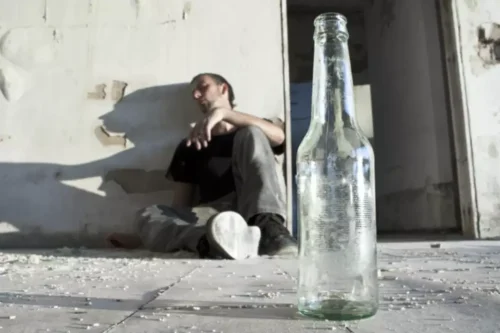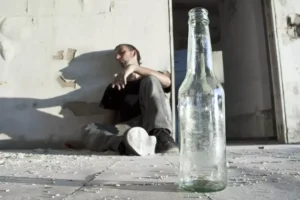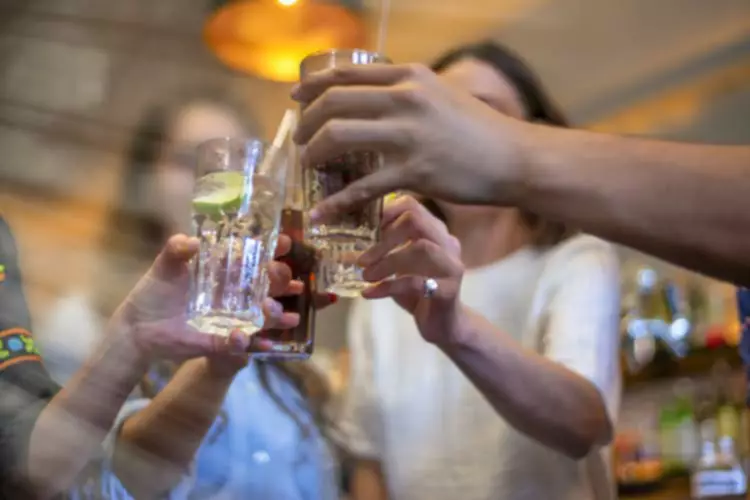.jpeg)
One study found that, six months after participating in Dry January, 40 percent of participants reported drinking less often and having fewer drinks, whereas 10 percent reported why do i sneeze when i drink alcohol the opposite. The key, according to Seija, is not to do Dry January just to go binge drinking on February 1 but to perhaps find a new drinking pattern that feels comfortable and sustainable. You may be asking yourself this question if you’ve ever experienced facial flushing.
.jpg)
Alcohol & Its Breaking Down in the Body
.jpg)
It is important to note that a food allergy is the immune system’s response to a food protein that the body perceives as harmful. In contrast, a food intolerance or sensitivity, which is more common, involves the digestive system and typically presents less severe symptoms, such as digestive problems. If you’re allergic to alcohol, you may experience hives, itching, swelling, difficulty breathing, and wheezing. If you experience these symptoms sneezing after drinking alcohol, you must see a doctor as you may need to be treated for an allergy. This article provides clarity by explaining the key differences between alcohol intolerance and alcohol allergy.
- They can help you determine if it is indeed the cause of your unpleasant reactions and recommend an appropriate treatment plan.
- Alcoholics Anonymous defines this as “a physical compulsion, coupled with a mental obsession to consume alcohol,”in which cravings for alcohol are always catered to, even at times when…
- Histamines can be found in wine, as they are produced when yeast is used to ferment grapes.
- Still, there are some groups for whom going sober might be the best policy, such as those with a family history of addiction, liver disease or cancer, Anton says.
- One of the most common alcohol-related allergic reactions is to wines containing sulfites.
The presence of sulfites does not always mean the wine is of a lower quality and, in fact, may be used to prevent spoilage. First, red wine can cause headaches because it contains high levels of compounds called tannins, which inhibit the enzymes that protect the brain from substances that can trigger migraines. When this blood-brain barrier isn’t protected as it should be, the brain is more susceptible to headache-inducing triggers.
- Even among the positive studies, potential health benefits are often quite small.
- Furthermore, it is important for anyone who suspects an allergy to red wine, to speak with their doctor to determine the cause and get an official diagnosis.
- Other studies have found that egg whites and gelatin are often used in the filtration processing of wine.
- These foods can help your body break down the histamines more effectively, reducing the potential for an allergic reaction.
- Histamine intolerance or sensitivity can make it difficult for the body to metabolize the histamines found in beer.
Causes of Stuffy Nose on Drinking Alcohol
However, some individuals may find certain alcoholic beverages, such as wine or beer, more likely to trigger the sneezing reflex due to their individual sensitivities. When you take a sip of alcohol, your body triggers a reaction in which your blood vessels widen and blood flow increases. As a result, the nerve endings in your nasal passages become more sensitive.
Why do i sneeze when i drink alcohol?
Symptoms of alcoholic hepatitis may include jaundice (yellowing skin or eyes), fatigue, nausea, and abdominal pain. Treatment for alcoholic hepatitis usually involves lifestyle changes such as abstaining from alcohol, eating a healthy diet and exercising regularly. If you are experiencing any of these symptoms after consuming wine, it could be because you are allergic to one or more components found in the beverage. The most common allergens found in wine include histamine and sulfites, but some people may also have an allergic reaction to the grapes used to make the wine, yeast, and other additives.
But because alcohol is a cellular toxin, anyone who drinks excessively increases their risk for oral cancer and esophageal cancer. Wine contains proteins from grapes, bacteria, and yeast, as well as sulfites and other organic compounds. Other studies have found that egg whites and gelatin are often used in the filtration processing of wine. Alcohol intolerance occurs when your body doesn’t have the proper enzymes to break down (metabolize) the toxins in alcohol.
What causes the sneezing reflex after consuming alcohol?
The most commonly proposed explanations include congestion, allergies, nerve stimulation, and genetic factors. If this phenomenon causes significant distress or worsens over time, it is recommended to consult with a healthcare professional to rule out any underlying issues. Histamine intolerance or sensitivity can make it difficult for the body to metabolize the histamines found in beer. One of the most common alcohol-related allergic reactions is to wines containing sulfites. Sulfites are used as a preservative in wine and other alcoholic beverages, but can lead to an adverse reaction in some people. Symptoms of this kind of allergy include sneezing, itching, hives and difficulty breathing.
If any of the following scenarios seem familar, it might be time to make some changes. If you get gustatory rhinitis, there are many treatments and management methods to choose from. While alcohol content does not directly cause sneezing, it can contribute to nasal congestion or irritation, potentially triggering sneezing in some individuals. If drinking from a glass makes you sneeze, try drinking through a straw instead. This will help reduce your nose’s contact with the drink and make it less likely to trigger a sneeze. It’s worth noting that current guidelines advise against drinking alcohol as a way to improve health.
Beer, brown liquor, and cider contain the highest levels of sulfites among alcoholic beverages. Sulfites are also found in wine, where they occur naturally as a result of the fermentation process. Allergic reactions to beer can manifest as abdominal pain and bloating, chest tightness, hives, wheezing, and chest pain. These symptoms can occur almost immediately after ingesting beer and should be treated as severe and potentially life-threatening. Histamines are chemicals produced by the human immune system and are found in nearly all tissues of the body.





